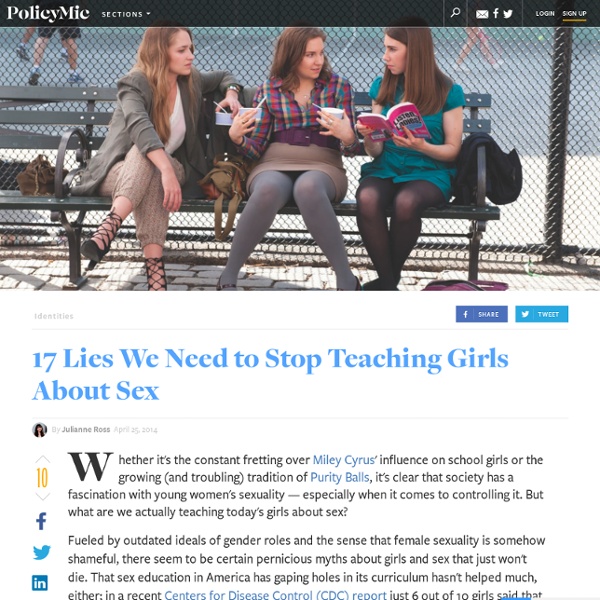17 Lies We Need to Stop Teaching Girls About Sex

Sending and receiving sexually explicit messages a normal part of teenage relationships, survey finds
Updated 2 hours 4 minutes ago A survey of Australian high school students has found that sending and receiving sexually explicit images and messages is a normal part of most teenage relationships. La Trobe university researchers interviewed more than 2,000 16 to 18-year-old students across the country as part of a study commissioned by the Federal Government. The National Survey of Australian Secondary Students and Sexual Health is conducted every five years to explore the sexual behaviour, knowledge and attitudes of young Australians. In the latest study researchers found that more than half of those surveyed had received a sexually explicit text message and 26 per cent reported sending a sexually explicit photo of themselves. The results showed 25 per cent of year 10 students, a third of year 11 students and 50 per cent of year 12 students surveyed reported having had sex. "Given that it’s against the law, I think we have thoroughly lost that battle for young people," she said.
I wanna sext you up: teens shun bedroom for online romance
Sex and school students - the truth Lots of sexting, but less sex - Year 10 to 12 students surveyed on sexual behaviour. Producer - Tom McKendrick 2, 2014 A LANDMARK study of Australian high school students’ sexual habits has revealed "sexting" online and via mobile phone is so widespread, experts are urging parents to accept it as a form of "modern day courtship". The La Trobe University study shows more than 70 per cent of sexually active year 10 to 12 students have sent explicit text messages, 84 per cent have received them, and more than half have sent naked or semi-nude photos or videos of themselves. But despite fears the increasing use of technology is encouraging promiscuity and sex from an early age, the report reveals that the rate of intercourse is actually dropping as more teenagers choose to wait. Eighteen-year-old Erin Filan. Advertisement Illustration: Matt Golding.
Related:
Related:



